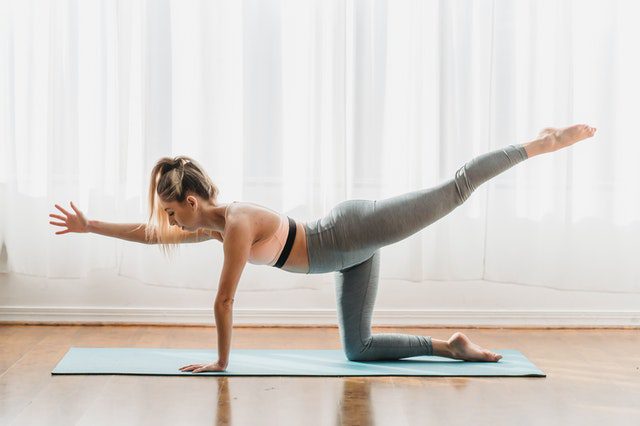Who wouldn’t want healthier veins?
Yes, you got that right, no one! Everyone wants to be healthy, but not everyone has the determination to do so.
Let us, first, familiarize ourselves with the numbers when it comes to vein problems. Conditions such as chronic venous insufficiency and varicose veins occur more often than you think!
Globally, 25-40% of women and 10-20% of men are affected by chronic venous insufficiency. 20% of adults will experience varicose veins in their lifetime. This simply means that in 5 people, 1 will be affected by varicose veins.
This is a reality we have to live with and to understand how important veins are, let’s learn more about their function in the body.
Veins have two special functions in our body. First off, it acts as a channel to transport blood back to the heart from the organs and tissues.
Second, veins work as backup storage. It accommodates large amounts of blood, and when the body is at rest, 2/3 of the total amount of blood is stored in the veins. Veins readily conform to the different pressures of the body.
Conditions affecting the veins are often debilitating, especially in the advanced stages, hence, the importance of having a healthy lifestyle. Let’s get a closer look at how we could achieve healthier veins.
Drink your water!
Yes, you heard it right; water is essential for us to have healthy veins. The human body is composed of more or less 50% water. Low water intake leads to impaired vessel function. On top of this, the endothelium functions as a regulator of vascular tone and permeability dysfunctions when you are dehydrated.
A sufficient amount of water needs to be maintained for your body to function fully. Your veins are no exception, so get hydrated and keep your body healthy!
Exercise regularly
One mechanism in the development of varicose veins is calf-muscle pump failure. The pumping action of the calf muscle allows more blood to be pumped back to the heart, relieving the increased pressure in the veins of the lower limbs.
Regular exercise that includes ankle exercise promotes better pumping action of the calf muscles.
When I say regular exercise, you do not need the gym to protect your veins; you just need the proper exercise that could increase the pumping action of your calf muscles. Remember, prevention is always better than cure, and to rehabilitate your calf muscles, you just need to develop them through exercise!
Lessen your salt intake
Salt has long been associated with hypertension.
In today’s generation, food is more often than not processed, and one easy way to prolong a food’s shelf life is by putting salt in it. Excessive salt intake leads to the possibility of developing hypertension and other cardiovascular diseases, thus, damaging our blood vessels.
To achieve healthier veins, eating less salt is one technique.
To do this, you have to stick to eating fresh food. Avoid fast food, processed food, and junk! These have high salt content. Go and buy yourself fresh and healthy food. Snack on fruits, vegetables, and nuts to prevent further damage to your veins!
Modify your diet
Aside from lessening the salt in your diet, one big modification you need to achieve in your diet is to choose the right food that contains the correct nutrients needed by your veins. At this point in our discussion, we will be tackling different nutrients one by one.
Vitamin K
Clotting of blood and metabolism of bone are just two of the many pathways where vitamin K plays a role. In the maintenance of the veins, vitamin K protects the vessels from developing vascular calcifications or calcium build-up. When the vessels become calcified, they become less flexible and more rigid, resulting in increased pressure.
By having enough supply of vitamin K in the body, we prevent this from happening. Dietary sources of vitamin K include green leafy vegetables, fruits, soybeans, cheese, and dairy. Don’t forget to jot that down on your shopping list!
Vitamin C
Here is another vitamin that has a role in protecting your veins – vitamin C. Like vitamin K, vitamin C also affects different bodily functions. The most important role of vitamin C in vein health is its maintenance of vascular responsiveness and integrity. By supporting the growth, survival, and function of the endothelium, you get healthier veins.
Food such as citrus fruits, peppers, broccoli, potatoes, and Brussel sprouts are good sources of vitamin C. Including these in your diet strengthens your veins, improving your vein condition!
Vitamin B complex
B-complex, a group of eight B vitamins, is also involved in the maintenance of healthy veins.
Reduced levels of vitamin B-complex, especially B6, are linked with the development of deep vein thrombosis or blood clots. Deep vein thrombosis occurs when a clot is formed in the lower limbs. Having DVT could worsen your vein’s condition, and it might give way to a more serious vein disease!
To combat this possibility, proper supplementation of your B-vitamins is the solution. Where can we get our B-complex supplementation? Dietary sources can be found in whole grains and cereals, meat, fish, dark green vegetables, dairy, and shellfish. Add that to your food list!
Vitamin D
Calcium and phosphorus levels in the body are influenced by vitamin D. Similar to vitamin K; vitamin D also affects vascular calcifications.
Reduced levels of vitamin D make the vein walls more rigid and less flexible to the changes in blood pressure. Normally, our vein walls are highly distensible, and to maintain such characteristics, one has to supply the body with enough vitamin D.
All you have to do is eat food rich in vitamin D, such as fatty fish like mackerel, tuna, and salmon, fortified dairy and cereals, beef liver, and egg yolks!
Good news: you can improve your vein condition!
A varicose veins clinic located in Dallas says that a lifestyle change and diet overhaul could be beneficial for your body. However, if you have vein disease, it would benefit from seeing a specialist who can help mitigate this condition before complications arise.




